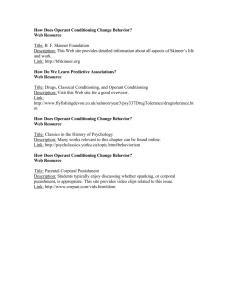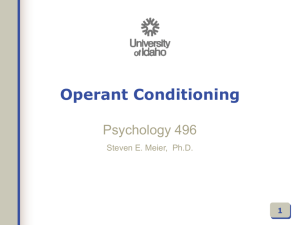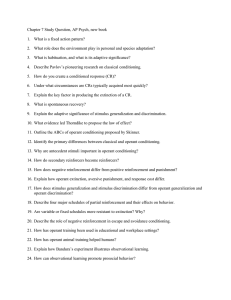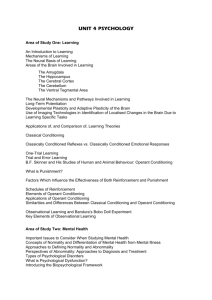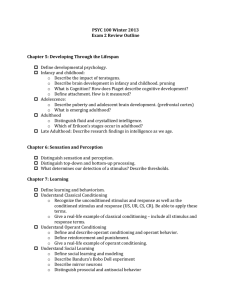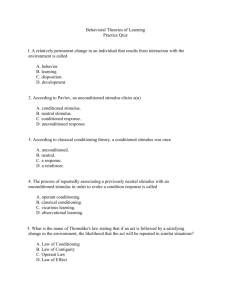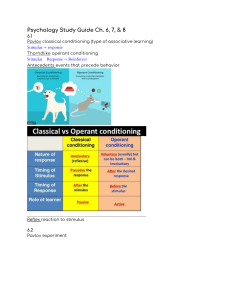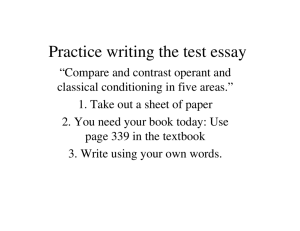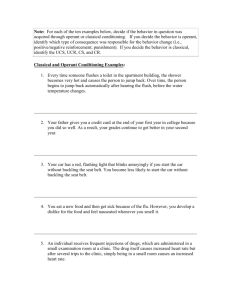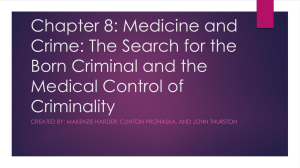PSychological Theories
advertisement
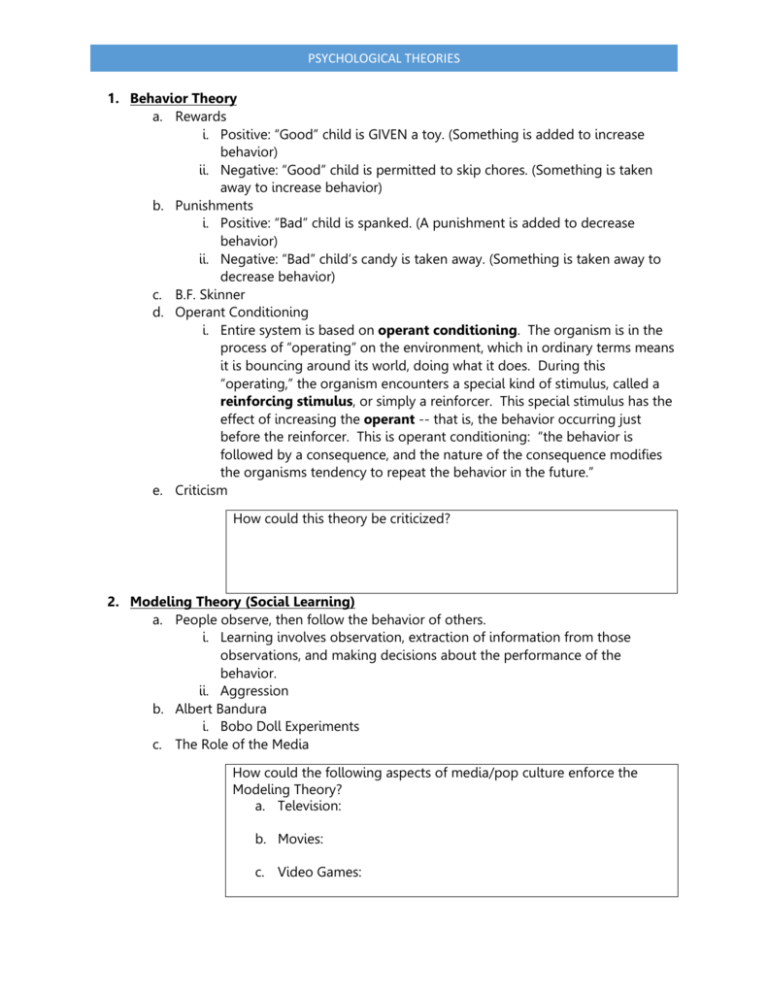
PSYCHOLOGICAL THEORIES 1. Behavior Theory a. Rewards i. Positive: “Good” child is GIVEN a toy. (Something is added to increase behavior) ii. Negative: “Good” child is permitted to skip chores. (Something is taken away to increase behavior) b. Punishments i. Positive: “Bad” child is spanked. (A punishment is added to decrease behavior) ii. Negative: “Bad” child’s candy is taken away. (Something is taken away to decrease behavior) c. B.F. Skinner d. Operant Conditioning i. Entire system is based on operant conditioning. The organism is in the process of “operating” on the environment, which in ordinary terms means it is bouncing around its world, doing what it does. During this “operating,” the organism encounters a special kind of stimulus, called a reinforcing stimulus, or simply a reinforcer. This special stimulus has the effect of increasing the operant -- that is, the behavior occurring just before the reinforcer. This is operant conditioning: “the behavior is followed by a consequence, and the nature of the consequence modifies the organisms tendency to repeat the behavior in the future.” e. Criticism How could this theory be criticized? 2. Modeling Theory (Social Learning) a. People observe, then follow the behavior of others. i. Learning involves observation, extraction of information from those observations, and making decisions about the performance of the behavior. ii. Aggression b. Albert Bandura i. Bobo Doll Experiments c. The Role of the Media How could the following aspects of media/pop culture enforce the Modeling Theory? a. Television: b. Movies: c. Video Games: PSYCHOLOGICAL THEORIES 3. Self-Control Theory a. People commit crimes when they have not developed adequate attachments, have not become involved in and committed to conventional activities, and have not internalized the rules of society. b. Tries to explain why people DO NOT commit crimes, instead of trying to explain why people DO commit crimes. c. Focuses on techniques and strategies that regulate human behavior and lead to conformity, or obedience to society’s rules. d. Rewards for good behavior lead to conformity in society. e. Travis Hircshi and Michael Gottfredson f. Adaptation to Crime How does this theory explain why a child would live a life a crime? How does this theory explain why an adult would live a life of crime?
